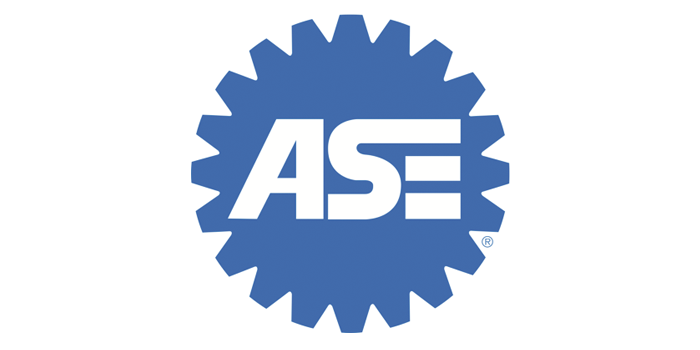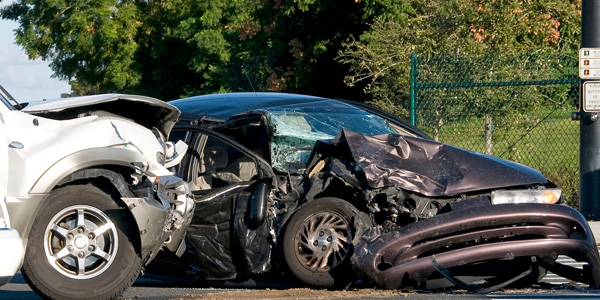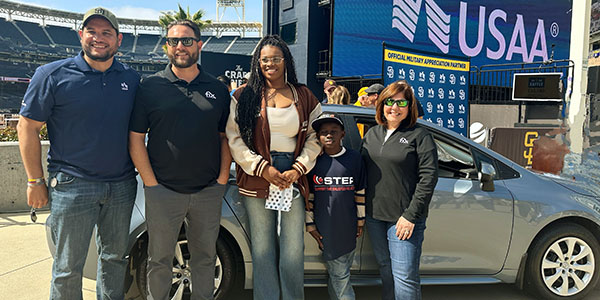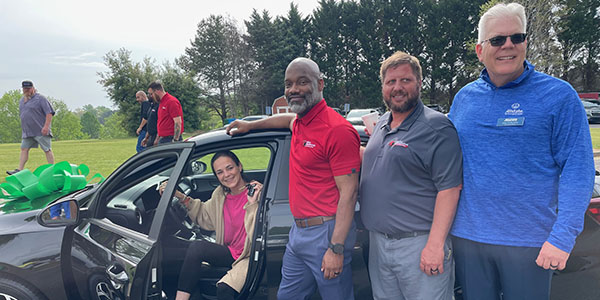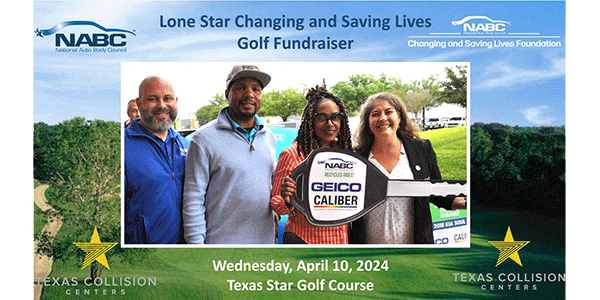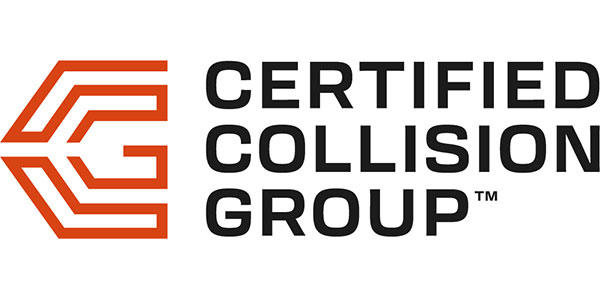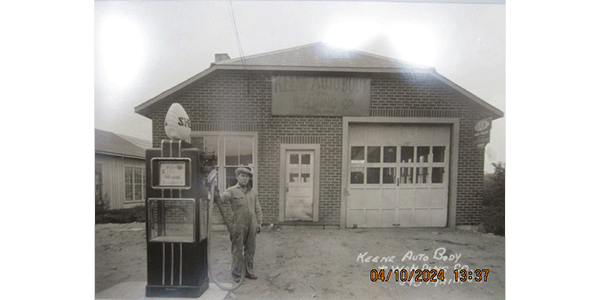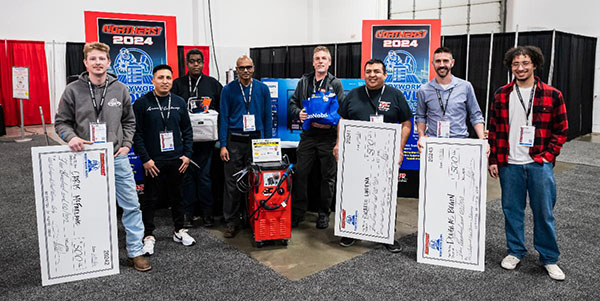Increasing Cycle Time
Dear BodyShop Business:
I just finished reading your articles on reducing cycle time (Jan. 2001 Production Issue). This leaves me extremely frustrated. Our shop employs 25 talented people, we have the latest in technology and a well-laid-out shop floor plan. But all of this means nothing if you can’t get the parts. With articles like these, it makes insurers as well as customers wonder why the vehicles we’re working on aren’t getting a quicker turnaround.
Where are the parts? We order from the local dealer, who gets them from a depot. If they don’t have them, who knows when we’ll get them, and our cycle time is shot! We even order our parts one or two weeks before the car is scheduled to come in just to make sure we’ll have them. But when you have a non-drivable vehicle, you don’t have the luxury of postponement until all of the parts are received. Or when a part is ordered with repairs in process and we’re stuck with a torn-down vehicle, we end up incurring the cost by putting the customer in one of our shop vehicles until those parts arrive.
We keep accurate records of our cycle time and pride ourselves on keeping the customers informed of any delays. Nine out of 10 delays are backordered parts. It isn’t just one manufacturer, since last fall, Ford, Chrysler and GM have all been terrible – no reasons or apologies to us or the vehicle owners given.
And the OEM dealers tell us it’s only going to get worse. They also get no satisfaction from the manufacturer, especially when it comes to parts the manufacturer has purchased from a vendor. The most recent case I’ve had was a Mercury Cougar. Its front air deflector has been ordered since the beginning of January. I called the Ford complaint line and was told that it was out of their hands since that part is made by a vendor. …
So where do we go from here? We’re still waiting on that part. The owner, out of total frustration, took the car incomplete. That’s not how we want to do business.
Thank you for letting me sound off, Kim Woolard, production manager
Zara’s Collision Center
Springfield, IL
Off With the Parts!
To: Georgina KajganicSubject:
Off With The Parts (Jan. 2001, pg. 22)We’ve been painting parts off cars for about 10 years now and can safely say that the amount of time savings is amazing. Some things not mentioned in Mr. Barone’s article that might help the reluctant shop owner try this process iinclude: Today’s cars are designed with a CAD computer, and the parts fit a lot better than in the past. Let’s face it, how many shims do you use now as compared with the cars of the ’70s or ’80s? Also, the installation process should be performed by two techs (four eyes and four hands are better than two). With two techs, the parts can be installed very quickly and with little chance of damage to the new parts. Typically, a fender replacement and door blend can be achieved in our shop in as little as two hours – and that’s start to finish. We also go big with this process. A full rear-end hit (two quarters, rear body, trunk and bumper) can be refinished in short time if you plan it out well. Remember, a lot of doors unplug these days, which make for an easy blend. Our shop motto is this: Prime once, seal once, paint once, clear once.
Thanks for an excellent article and an excellent magazine with lots of great ideas.
Paul Berry, owner
Indian Auto Collision
Katonah, NY
Can Three Day Cycle Times Become Commonplace?
RE: Article in BSB by John Londergen (Feb. 2001 Point CounterPoint, pg. 20)
This is a perfect example of not wanting or knowing how to make new changes in our old business. What’s so mind boggling to me is: What makes you think you can’t produce high-quality repairs in a quick amount of time? We’re not standing over our techs with a bullwhip. Quality is never compromised. What we’re saying is eliminate the waste we’ve created by doing business in the year 2001 with a 1980 mentality.
Standard shop operations would have you believe we have to write an estimate, pre-order parts, schedule the car to come in, issue it to a tech, then stop and wait for a supplement, and order supplemental parts – all while the car is still sitting. Then the supplemental parts come in wrong. The car is finally put back into work in progress. Finally, you’re ready to deliver the car, and now you need belt molding or clips or brackets. You know the routine. Do you see any waste here?
Mr. Londergen, where has the quality of the repair been compromised? We can do better. What if we give a tech a repair that was actually ready to be repaired? He’d certainly appreciate us a lot more. The customer would certainly appreciate us.
Quality is built into your shop. You need to keep this in mind when one of those consolidator shops builds one next door and starts turning out great quality repairs while you’re still waiting for a supplement. Cycle time is a very important part of a repair. We don’t want to confuse this with “re”cycle times: pulling a car in and out and finally “re”cycling it out for delivery.
Sincerely,
Gary Gulisano, gen. mgr.
Sterling Autobody
Alpharetta, GA
There Is No Technician Shortage
Georgina,
I just read the article “There Is No Technician Shortage” in the February issue of BSB (Supervising Smarts, pg. 18) and I, too, feel there’s no shortage. I believe quality techs are going into other professions. I was considering leaving the collision repair field after 15 years when I recently moved to North Carolina from New York and found myself jumping from shop to shop. … All of these shops have numerous DRPs, and I felt they were at the mercy of the insurance companies’ tight concession-based estimates. If I tried to write a supplement, it was criticized and turned down. Just eight weeks ago I was ready to get out and find something new.
Thank God I didn’t. I’m now proud to say I’m working for a husband/wife team at USA Custom Paint & Body in Raleigh, N.C. Jim and Missy are two extraordinary business owners who stand toe to toe with insurance companies for the benefit of the customer and the technician. After 15 years, I’ve finally found an employer who honestly tries to get paid for every operation a tech performs. They’ll even go so far as to pay [techs] for something they didn’t get paid for. We do it by the book. I guess it has something to do with both of them previously working on the floor.
Missy and Jim don’t hold back on training or equipment either. Our office walls are loaded with certifications from I-CAR and ASE, and they’ve just added updated frame equipment to help us do our jobs. They definitely project a family atmosphere. …To those techs who are thinking about getting out, keep looking for bosses like mine – they’re out there!Thanks for a great magazine Georgina, and thanks USA for a new outlook on my proud profession.
Rick Rinfrette, collision technician
USA Custom Paint & Body
Raleigh, NC
Learning to Play Nice
Dear Georgina Kajganic,
I just read your “Play Fair” cover story (Feb. 2001, pg. 76), and it was just about what I expected to hear. But it left me with questions. Why was it so hard to find insurance people to honestly answer your questions? Why did you have to offer anonymity just to get “Bill and Ted” to talk? What were “Bill and Ted” afraid of that they wouldn’t say who they were or who they worked for? Would you pick a marriage partner or even a business partner who was this secretive and controlled? Why would anyone want to partner with an industry so afraid of honest answers, especially when it involves their livelihood? Play nice? Why play at all with an industry whose own people cannot use their real names for fear of reprisal from their supervisors?
Your article, from my perspective, just goes to show who body shops have been dealing with for years, and it’s not getting any better. Three years ago, there were 43 body shops listed in our local Yellow Pages. Today there are 29 (mine, Hot Rod’s, is no longer listed after 16 years), and I believe that, in part, it’s due to the ethics of the insurance industry, which can’t be honest and upfront with body shops and consumers. Even their own employees fear them. Think about it.
Just for the record, there is life after getting off the insurance IV, and I’m not afraid to use my name.
Very sincerely,
Mike Hastings, owner
Advantage Powder Coating
Sherman,TX
Diminished Value: Fear It or Forget It?
Dear Ms. McGee:
All body shop owners better be concerned about diminished value – for this is just another “laying off” by the insurance industry of their fiduciary responsibility of repairing or replacing an item to pre-accident condition. There’s no way a body shop can repair collision damage to “pre-loss condition” because a vehicle’s history will follow it forever and hurt its trade-in and retail value. …
We all pay insurance premiums to make us or the others we injure as whole as possible, and I bet the driving public in more than 30 states whose insurance boards or legislators wrote out diminished value didn’t get a reduction in their premiums after the well-organized and expensive insurance industry’s lobbyists coerced the legislators or insurance commissioners.
If one lawyer can write a law, another can find fault with it. In the process, the lawyers always win while the public and, in particular, body shop owners lose because of the many lawsuits [customers bring] against them for failure to make them “whole.” The public and lawyers go for the area of least resistance, and it’s quite obvious that those body shop owners (who didn’t organize) in the more than 30 states mentioned earlier don’t see this as the tip of the iceberg.
Respectfully submitted,
Chris M. Zora, independent appraiser
The Woodlands,TXs
Whoa, Slugger! Use Your Head Instead
Dear Georgina,
I’ve been wanting to tell you what I thought of your recent editorial [Whoa, Slugger! Use Your Head Instead, Oct. 2000, pg. 4] ever since reading it. I have a few moments this afternoon, so I thought I’d e-mail you. My husband and I have operated our collision shop for more than 20 years now, with this year marking our business’ 50th anniversary. I feel I need to share some of our experiences, as some strong emotions rose to the surface while reading your piece.
You stated that we may alienate the front-line claims employees by going over their heads to the higher ups when we’re unable to resolve anything with them. But what’s a shop owner to do? There are times when this has been necessary, and it’s been our only alternative. While I feel it’s totally appropriate to treat any person we come in contact with with basic respect and decency, allowing appraisers and insurers to dictate our business practices to us isn’t an option. We’re ultimately responsible and liable for the repairs performed and never view the authorization of OEM parts by insurers as “winning” anything.
Negotiation skills are a wonderful tool, but between the shop estimator and insurance appraiser, who’s really getting the short end of the stick in this so-called negotiating situation? Why it’s the vehicle owners! We feel they need to be kept in the loop to ensure their best interests are being met. In my mind it relates well to the latest TV ad where there’s a waiting room full of doctors reading magazines and dozing off, waiting for their appointments to see the insurance companies for permission to treat their patients. Have you seen it yet? It’s quite comical.
Thanks for taking the time to read this, and I hope you understand the spirit in which it was meant. After 50 years of family ownership, we’ve experienced just about every scenario. I’m certain that through the years, we’ve most likely alienated an appraiser or insurer from time to time. But it was always with complete respect and dignity, and we were always placing our customer first. Mark has never raised his voice to a single soul; that’s just not his style. We’re not all looking for a battle, but we feel we are the repair professionals. After all, that’s what we do every day of the week.
Warmest regards,
Pam Pierson, co-owner
Princeton Auto Body
Princeton, IL.
![]()
Diminished Value: Fear It or Forget It?
Subject: Diminished Value Market Watch [Dec. 2000, pg. 16]
Shops may fear loss of market value, but the loss has nothing to do with whether a shop repairs the car or not, since the loss occurs at the instant of the accident that causes the damage. Very few reasonable people will knowingly buy a damaged – but repaired – car for the same money as they would for an identical but undamaged auto.
Shops that can’t reasonably repair cars may have cause for concern since they may be liable for less-than-satisfactory repairs – but that would be in addition to the loss of market value.
Loss of market value is always owed on a third-party claim. First-party liability is what’s really in contention since it’s a contractual issue. Regardless of which side you’re on (if you believe most, if not all, policies are cash value policies, for instance), first-party liability will be determined by the courts on a state-by-state basis, and the issue will continue to be a moving target until each state policy either specifically includes or excludes loss of market value under the policy contract. And even though loss of market value may be supported by a state legislature, third-party loss of market value may be denied, relying on first-party determinations regardless of tort law applicability.
Loss of market value is the only measure of whether an auto is reasonably returned to pre-accident condition, and that judgment is a subjective one – and always will be. But it’s better than nothing. … Loss of market value determinations before or after repairs are the only checks and balances available to the consumer, since they’re the only arm’s-length determination of the initial loss or subsequent loss due to poor repairs.
Without loss of market value determinations by other than the third-party payer or his agent, the consumer will primarily have the third-party payer or his agent making that determination. The best analogy I’ve heard is “the fox guarding the hen house.”
Roy Smalley, owner
Eurowerks, Inc.
Dallas, TX

